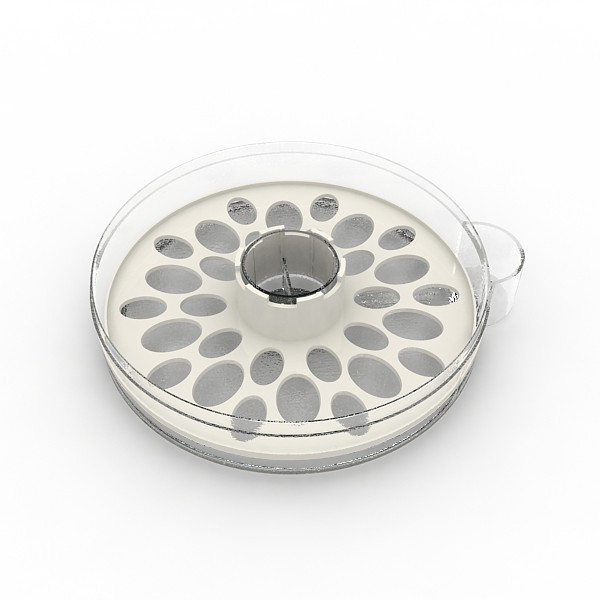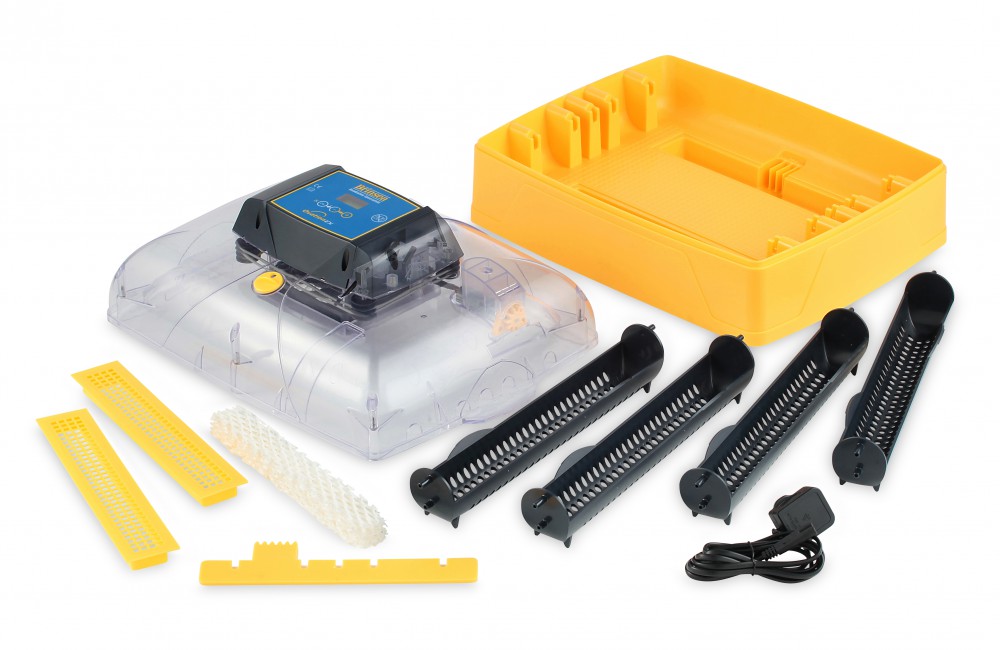IMPORTANT: We will be closed Friday 27th-Monday 30th June: Please see our updated delivery page for full details.
What's the correct humidity for hatching chickens?
Incubator humidity is one of the most talked about points in incubation and chicken keeping. It's open to a great deal of debate, resulting in many anxious nights for first timers and experienced breeders alike.
The first rule of incubation humidity: Don’t panic!
Unlike temperature - which needs to be kept constant - humidity can vary greatly without having any adverse effect on your hatch. Guidelines suggest an average humidity level of 50-55%. But in reality, keeping within such a tight range is almost impossible, even for incubators with full humidity control (such as the Rcom King Suro Max 20, below). Your actual humidity levels are likely to vary, up and down, between 40% up to around 65%, before heading back down again. This is perfectly normal and nothing to be concerned about.
Aim for 52% Relative Humidity. But this is only a target, not a steadfast rule.

If your incubator is set to a humidity level of 55%, the actual humidity levels will fluctuate. But it will average at the set level.
What does it mean when we say, “Relative Humidity”?
Incubator humidity is a moving target. By this I mean that it depends on two factors: air temperature and air pressure.
If you imagine that the air around us is a giant sponge, you could imagine that it has a certain, critical capacity at which it's ‘full’ with evaporated water and cannot hold any more. Let’s call this, 100% humidity. If it begins to rain, and the air loses half its moisture, it could be said to reduce to 50% humidity.
However, in reality air is different to a sponge, because hot air can hold more water than cold air. That’s why hot countries tend to feel more humid than cold countries - there is more water held in the air. So 100% humidity at 37.5°C means there is a lot more water in the air than 100% humidity at 10°C. Ever wondered why carpets get damp in the cold basement? There’s your answer. The cold air in the basement cannot hold as much water as the warm air upstairs, so the basement carpets get damp instead.
A similar principle applies with air pressure too. But unless you’re planning to place your incubator on Mount Everest, it’s not likely to concern us too much.
So, in summary, ‘relative’ humidity is exactly that... it's the amount of water that's in the air, as a percentage of the maximum amount of water that the air could hold at its current temperature. Usually expressed as RH%.
Should the humidity rise during hatching?
In general terms, it's good practice to increase humidity for the hatching period (days 18-21 of incubation). A figure of 70-75% relative humidity is a good target to have in mind. Higher humidity during the final three days of chicken incubation helps to soften the egg shells, making the hatch a less tiresome experience for the hatchlings.
Most incubators don’t feature automatic humidity control, and instead, rely on having two separate channels for the water. Having two channels helps regulate the evaporation, since water can only evaporate from the surface. Twice the channels means twice the evaporating surface, resulting in a higher level of humidity when all the channels are in use. See some examples below.
 |
 |
| The Rcom 10 Pro has a circular humidity pot in the base of the incubator. The pot is split into two, allowing you to double or halve the surface area of water for greater control of humidity levels. Similarly, the Brinsea Ovation 28 EX features two separate trays in the yellow base of the incubator. You can just fill one channel, or fill them both, depending on how much evaporation you want. | |
And finally…less is better!
When it comes to chicken egg incubation, the No.1 mistake made by first time breeders is too much humidity. It’s vitally important to remember that embryos need air, not just moisture. Too much humidity will effectively suffocate the embryos and not allow them to grow fully inside the shells. So, when considering whether to add more water to the incubator, follow this simple rule… If in doubt, keep water out!

|

|

|

|

|

|

|

|


Unit G6 Beverley Enterprise Centre, Beck View Road, Beverley, East Yorkshire, HU17 0JT
(Please Note: We are not a retail shop. There is no public access and we cannot accept public visitors)
Company Registration number 07518922 VAT no. 905186037




